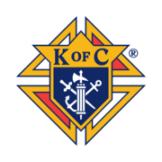The Knights of Columbus was founded on March 29, 1882, in New Haven, Connecticut, by Father Michael J. McGivney, a young parish priest at St. Mary’s Church. At a time when Catholic immigrants, particularly Irish, faced widespread discrimination and economic hardship, Fr. McGivney sought to create an organization that would provide financial aid and social support to Catholic families, especially those who lost their breadwinners. The organization was also designed to help Catholic men remain steadfast in their faith amidst the pressures of assimilation into Protestant-dominated American society.
From its inception, the Knights of Columbus was structured as a fraternal benefit society, offering life insurance to widows and orphans while promoting charity, unity, and patriotism. The name “Knights of Columbus” was chosen to reflect both the chivalric ideals of medieval knighthood and the legacy of Christopher Columbus, who was widely regarded as a symbol of Catholic heritage in America. The organization quickly gained members, expanding first across Connecticut and then throughout the United States.
By the early 20th century, the Knights had become a powerful force within the Catholic Church and American society. During World War I, they supported soldiers by establishing “Knights of Columbus Huts” to provide recreational and spiritual services. Their motto, “Everybody Welcome, Everything Free,” became well known during the war. Similarly, during World War II, the organization contributed to war relief efforts and the moral support of troops. Over the decades, the Knights expanded their reach beyond the U.S., establishing councils in Canada, Mexico, and the Philippines.
The Knights of Columbus also played a crucial role in civil rights and social justice. In the early 20th century, they actively opposed the Ku Klux Klan, which was virulently anti-Catholic, and they promoted the contributions of Catholics in American history. In 1924, they commissioned the production of historical texts to counter anti-Catholic narratives, including “Racial Contributions to the Making of America”. Later, in the 1950s and 60s, the organization supported the civil rights movement and assisted with humanitarian efforts, including aid to persecuted Catholics in communist regimes.
One of the Knights’ most enduring contributions has been in the area of charity and community service. They have been strong advocates for people with disabilities, pro-life causes, and disaster relief efforts. In the 21st century, the Knights have continued to serve global communities through financial donations and volunteer work, providing millions of dollars annually for humanitarian causes. Their support for the Special Olympics, programs for veterans, and disaster relief efforts have solidified their reputation as a leading Catholic charitable organization.
Today, the Knights of Columbus has grown into a worldwide organization with over two million members across the globe. They continue to promote their founding principles of charity, unity, fraternity, and patriotism while maintaining a strong presence in Catholic parishes and communities. Father McGivney was beatified in 2020, a step toward sainthood, further emphasizing the organization’s deep spiritual roots.
With a history spanning over 140 years, the Knights of Columbus remains one of the most influential Catholic fraternal organizations, upholding its commitment to faith, family, and service in an ever-changing world.
